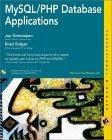Question
import ctypes # provides low-level arrays import logging, time logging.basicConfig(format=%(asctime)s: %(message)s, level=logging.INFO, datefmt=%H:%M:%S) ################# class MyQueue0(object): Circular buffer, no expansion. Queue operations are O(1) def
import ctypes # provides low-level arrays
import logging, time
logging.basicConfig(format="%(asctime)s: %(message)s", level=logging.INFO, datefmt="%H:%M:%S")
#################
class MyQueue0(object): """Circular buffer, no expansion. Queue operations are O(1)""" def __init__(self, capacity): """Create array with given items, or an empty array.""" # The user thinks of _dataStartIndex as index 0. self._dataCount = 0 self._blockCapacity = capacity self._dataStartIndex = 0 self._block = (capacity * ctypes.py_object)() # low-level array
def put(self, obj): self._block[(self._dataStartIndex + self._dataCount)%self._blockCapacity] = obj self._dataCount += 1 def get(self): """Return and delete the first item or raise EmptyError exception.""" obj = self._block[self._dataStartIndex] self._block[self._dataStartIndex] = None self._dataStartIndex = (self._dataStartIndex+1) % self._blockCapacity self._dataCount -= 1 return obj
#------------------------- def circBuffer0Demo(): print("Circular buffer demo (repeated get and put operations).") q = MyQueue0(3) q.put(1) q.put(2) q.put(3) for _ in range(100): x = q.get() q.put(x+3)
#-----------------------
#circBuffer0Demo() # executes without an error.
###########################
import threading class MyJoinableQueue(MyQueue0): def __init__(self, capacity): self.tasks = 0 self.joinLock = threading.Lock() self.lock = threading.Lock() self.putSem = threading.Semaphore(capacity) self.getSem = threading.Semaphore(0) super().__init__(capacity) def put(self,value): self.putSem.acquire() self.lock.acquire() if self.tasks == 0: self.joinLock.acquire() super().put(value) self.tasks += 1 self.lock.release() self.getSem.release() def get(self): self.getSem.acquire() self.lock.acquire() result = super().get() self.lock.release() self.putSem.release() return result
def task_done(self): self.tasks -= 1 if self.tasks == 0: self.joinLock.release()
def join(self): self.joinLock.acquire self.joinLock.release
#------------------
def circBufferDemo(): print("Circular buffer demo (repeated get and put operations.") q = MyJoinableQueue(3) q.put(1) q.put(2) q.put(3) for _ in range(100): x = q.get() q.put(x+3)
#------------------
#circBufferDemo() # Make sure it executes without an error.
###########################
def blockingDemo(): print("Blocking bounds demo.") def get(aQueue): logging.info("Attempting get operation.") x = aQueue.get() logging.info(f"get opeartion completed: {x}.")
def put(aQueue, value): logging.info("Attempting put operation.") aQueue.put(value) logging.info(f"put({value}) completed.")
q = MyJoinableQueue(3)
t1 = threading.Thread(target=get, args=(q,)) t1.start() # wants to get an item but blocks time.sleep(1) # main thread: q.put(0) # thread t2 can get now t1.join()
q.put(1) q.put(2) q.put(3) # the queue is full t2 = threading.Thread(target=put, args=(q,4)) t2.start() # wants to get an item but blocks time.sleep(1) # main thread: q.get() # thread t2 can put now t2.join() print()
#-------- #blockingDemo() # Make sure it runs and gives output like: # Blocking bounds demo. # 16:09:16: Attempting get operation. # 16:09:17: get opeartion completed: 0. # 16:09:17: Attempting put operation. # 16:09:18: put(4) completed.
###########################
TASKS = 100 THREADS = 20
class Consumer(threading.Thread):
def __init__(self, taskSupply, resultList): super().__init__(daemon=True) self.taskSupply = taskSupply self.resultList = resultList
def run(self): while True: task = self.taskSupply.get() self.resultList.append(task) time.sleep(0.1) self.taskSupply.task_done() # !!!
#-----------
def joiningQueueDemo():
print("Joining the queue demo.") tasks = MyJoinableQueue(TASKS) for number in range(TASKS): tasks.put(number)
results = [] for t in range(THREADS): c = Consumer(tasks, results) c.daemon = True c.start()
tasks.join() # wait for tasks to finish. print(results)
#------------ joiningQueueDemo() # Make sure it runs and gives output like: #Joining the queue demo. #[0, 1, 2, 3, 4, 5, 6, 7, 8, 9, 10, 11, 12, 13, 14, 15, 16, 17, 18, 19, 20, # 21, 22, 23, 24, 25, 26, 27, 28, 29, 30, 31, 32, 33, 34, 35, 36, 37, 38, 39, # 40, 41, 42, 43, 44, 45, 46, 47, 48, 49, 50, 51, 52, 53, 54, 55, 56, 57, 58, # 59, 60, 61, 62, 63, 64, 65, 66, 67, 68, 69, 70, 71, 72, 73, 74, 75, 76, 77, # 78, 79, 80, 81, 82, 83, 84, 85, 86, 87, 88, 89, 90, 91, 92, 93, 94, 95, 96, # 97, 98, 99]
#=========================
EDIT #3: IN BOLD, WHAT DO I DO TO MAKE THE CLASS "MyJoinableQueue " TO WORK IN ORDER TO MAKE "def joiningQueueDemo():" IN THE BOTTOM TO WORK!
Step by Step Solution
There are 3 Steps involved in it
Step: 1

Get Instant Access to Expert-Tailored Solutions
See step-by-step solutions with expert insights and AI powered tools for academic success
Step: 2

Step: 3

Ace Your Homework with AI
Get the answers you need in no time with our AI-driven, step-by-step assistance
Get Started


